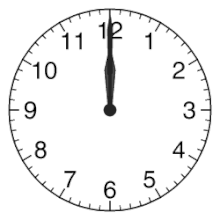tempus
Appearance
අමතර අවධානයට: Tempus
ලතින්
[සංස්කරණය]
| Picture dictionary | |
|---|---|
|
නිරුක්තිය
[සංස්කරණය]From Proto-Italic *tempos. Two ultimate roots/origins have been proposed:
- From ප්රොටෝ-ඉන්දු-යුරෝපීය *tempos (“stretch”), from the extension *temp- of the root *ten- (“to stretch, string”), with meaning development "what is stretched, stretching" → "stretch (of time)" → "time, occasion".[1]
- From ප්රොටෝ-ඉන්දු-යුරෝපීය *temh₁- (“to cut”), thus "a section (of time)", this root also giving ලතින් temnō, tondeō, පුරාතන ග්රීක τέμνω (témnō); compare the etymology of English time. templum is a possible cognate that has also been assigned to both roots. (Can this(+) etymology be sourced?)
Sense 2 is a සැකිල්ල:sl, from καιρός (kairós, “time, opportunity, etc.”), and is less frequent in singular form. Compare පුරාතන ඉංග්රීසි þunwang (“temple of the head”), Middle High German tinne, tinge (“forehead, temples”).
As seen from the adverb temperī, the noun would originally have declined like genus.
උච්චාරණය
[සංස්කරණය]- (Classical Latin) IPA(key): /ˈtem.pus/, [ˈt̪ɛmpʊs̠]
- (modern Italianate Ecclesiastical) IPA(key): /ˈtem.pus/, [ˈt̪ɛmpus]
නාම පදය
[සංස්කරණය]tempus නපුංසක ලිංග (genitive temporis); third declension
- (literally):
- a time (a portion or period of time)
- ad/in tempus ― temporarily; for a time
- tempus diurnum ― daytime
- (especially) an interval, period (the time intervening between two events)
- 397 CE – 401 CE, Aurelius Augustinus Hipponensis, Confessions 4:
- per īdem tempus annōrum novem, ab ūndēvīcēnsimō annō aetātis meae ūsque ad duodētrīcēnsimum, sēdūcēbāmur et sēdūcēbāmus
- During this period of nine years, from my nineteenth year to my twenty-eighth, I went astray and led others astray.
- per īdem tempus annōrum novem, ab ūndēvīcēnsimō annō aetātis meae ūsque ad duodētrīcēnsimum, sēdūcēbāmur et sēdūcēbāmus
- (in general) time
- (in particular) the kairos, right time, due season, due time, proper time, appointed time, opportune time, opportunity
- in tempore ― at the appropriate time; in due season
- ad tempus venīre ― to come at the right time
- ante tempus ― too soon (literally, “before the right time”)
- a time (a portion or period of time)
- (anatomy):
- (other transferred senses):
- the state of the times, position, state, condition; (in the plural) the times, circumstances (the time or age in its moral aspects)
- prō tempore ― according to the circumstances
- 63 BCE, Cicero, Catiline Orations Oratio in Catilinam Prima in Senatu Habita.II:
- Ō tempora, ō mōrēs! Senātus haec intellegit, cōnsul videt; hic tamen vīvit. Vīvit?
- Shame on the age and on its principles! The senate is aware of these things; the consul sees them; and yet this man lives. Lives!
- Ō tempora, ō mōrēs! Senātus haec intellegit, cōnsul videt; hic tamen vīvit. Vīvit?
- (poetry, rhetoric) time; measure, quantity
- (grammar) a tense (property of a verb that indicates the point in time at which an action or state of being occurs)
- (Medieval Latin, rare) the weather
- the state of the times, position, state, condition; (in the plural) the times, circumstances (the time or age in its moral aspects)
වරනැඟීම
[සංස්කරණය]Third-declension noun (neuter, imparisyllabic non-i-stem).
| Case | Singular | Plural |
|---|---|---|
| Nominative | tempus | tempora |
| Genitive | temporis | temporum |
| Dative | temporī | temporibus |
| Accusative | tempus | tempora |
| Ablative | tempore | temporibus |
| Vocative | tempus | tempora |
ව්යුත්පන්න යෙදුම්
[සංස්කරණය]Descendants
[සංස්කරණය]- Eastern Romance
- Franco-Provençal: temps
- Gallo-Italic
- Italo-Dalmatian
- Rhaeto-Romance
- Occitano-Romance
- Oïl
- පුරාතන ප්රංශ: temps (see there for further descendants)
- Venetan: tenpo, tènp
- West Iberian
- Borrowings
From tempora (plural): සැකිල්ල:hcol
- ⇒ Vulgar Latin: *tempula, *templa
- → Basque: denbora
- → ඉතාලි: tempora
- → පෘතුගීසි: têmpora
- → Sicilian: tèmpura
- → ස්පාඤ්ඤ: témpora
මූලාශ්ර
[සංස්කරණය]වැඩිදුර් කියවීම සඳහා
[සංස්කරණය]- “tempus”, in Charlton T. Lewis and Charles Short (1879) A Latin Dictionary [ලතින් ශබ්දකෝෂය], ඔක්ස්ෆෙර්ඩ්: Clarendon Press
- “tempus”, in Charlton T. Lewis (1891) An Elementary Latin Dictionary [ආරම්භක ලතින් ශබ්දකෝෂය], නිව්යෝක්: හාපර් සහ සහෝදරයෝ
- tempus in Charles du Fresne du Cange’s Glossarium Mediæ et Infimæ Latinitatis (augmented edition with additions by D. P. Carpenterius, Adelungius and others, edited by Léopold Favre, 1883–1887)
- tempus in Gaffiot, Félix (1934) Dictionnaire illustré latin-français, Hachette.
- සැකිල්ල:R:M&A
ප්රවර්ග:
- ලතින් links with redundant alt parameters
- Visual dictionary
- ලතින් යෙදුම්, Proto-Italic වෙතින් උරුම වූ
- ලතින් යෙදුම්, Proto-Italic වෙතින් ව්යුත්පන්න
- ලතින් යෙදුම්, ප්රොටෝ-ඉන්දු-යුරෝපීය වෙතින් ව්යුත්පන්න
- Requests for references for etymologies in ලතින් entries
- ලතින් 2-syllable words
- ලතින් යෙදුම්, ස්වරශාස්ත්ර හෝඩි උච්චාරණ සහිත
- ලතින් පාඨ
- ලතින් නාම පද
- Latin neuter nouns
- Latin third declension nouns
- Latin neuter nouns in the third declension
- Latin nouns with red links in their inflection tables
- ලතින් පද, අනු පිටපත් කළ යොමු පරාමිති සහිත
- ලතින් නපුංසක ලිංග නාම පද
- Pages with entries
- Pages with 1 entry
- ලතින් යෙදුම්, භාවිත නිදර්ශන සහිත
- ලතින් terms with quotations
- la:Anatomy
- ලතින් poetic terms
- ලතින් terms with transferred senses
- la:Poetry
- la:Rhetoric
- la:Grammar
- Medieval Latin
- ලතින් terms with rare senses
- la:Time
- la:Seasons
- la:Weather


